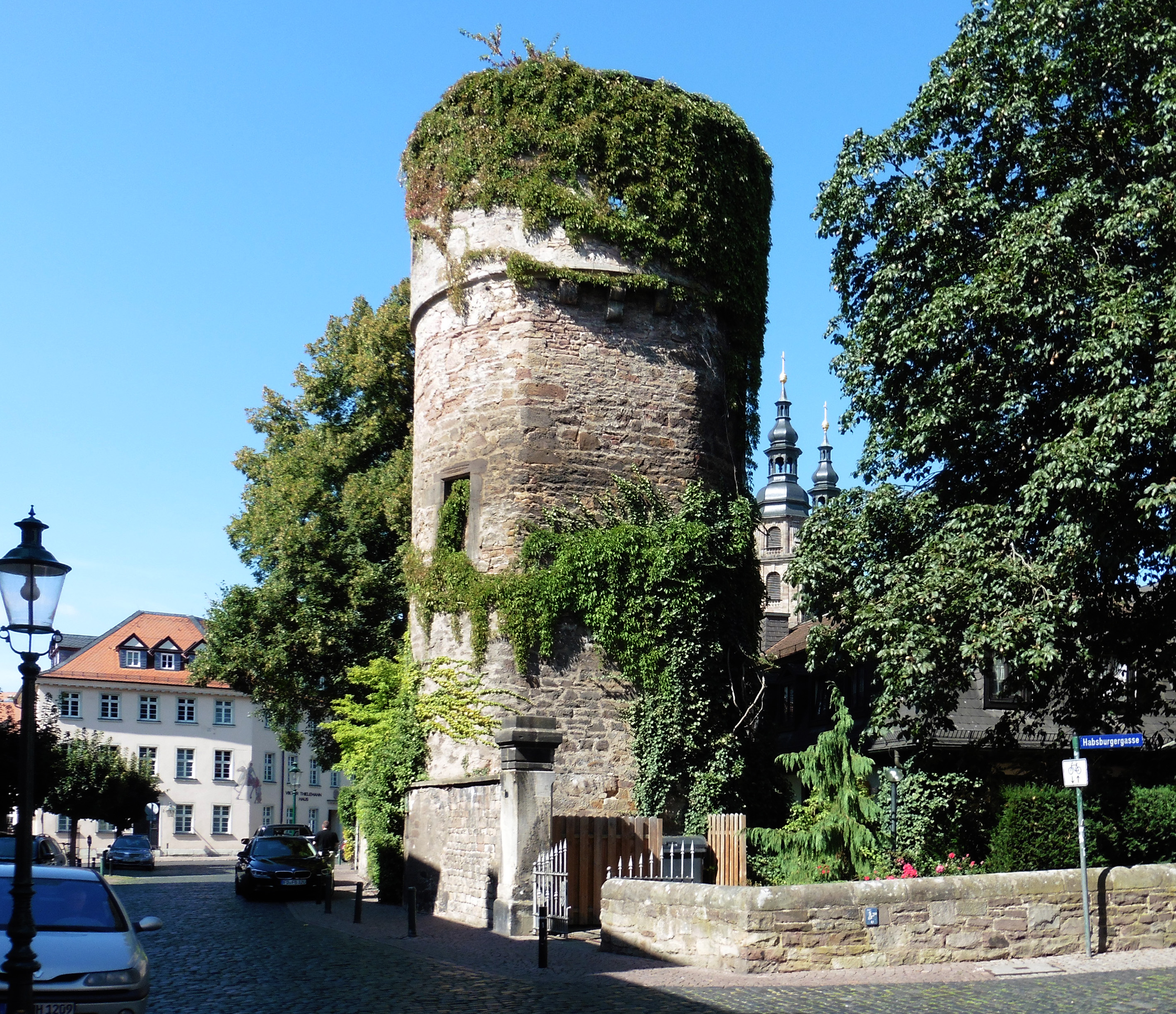Merga Bien on:
[Wikipedia]
[Google]
[Amazon]
 Merga Bien (late 1560s – 1603) was a German woman convicted of
Merga Bien (late 1560s – 1603) was a German woman convicted of
witchcraft
Witchcraft is the use of Magic (supernatural), magic by a person called a witch. Traditionally, "witchcraft" means the use of magic to inflict supernatural harm or misfortune on others, and this remains the most common and widespread meanin ...
and perhaps the most famous of the victims in the Fulda witch trials
The Witch trials of Fulda in Germany from 1603 to 1606 resulted in the death of about 250 people. They were one of the four largest witch trials in Germany, along with the Trier witch trials, the Würzburg witch trial, and the Bamberg witch trial ...
in 1603–05.
Life
Bien was born in the city ofFulda
Fulda () (historically in English called Fuld) is a city in Hesse, Germany; it is located on the river Fulda and is the administrative seat of the Fulda district (''Kreis''). In 1990, the city hosted the 30th Hessentag state festival.
Histor ...
. She was married three times and was the heiress of her first two husbands, which later played an important part in accusations. In 1588, she married Blasius Bien and moved from the city, but, fatefully, returned after a conflict with her husband's employers.
At the time, prince abbot Balthasar von Dernbach
Balthasar von Dernbach (1548 – 15 March 1606), was a Benedictine monk of Fulda monastery and its Prince-Abbot from 1570 to 1606.
Family
Balthasar was born into a branch (''called Graul'') of the ''von Dernbach'' family, a family of knights ...
, who had returned to power in 1602 after a long exile, ordered an investigation of witchcraft in the city. Over two hundred people were executed for witchcraft in witch trials that lasted until his death in 1605. In March 1603, the investigations resulted in the first wave of arrests in the city. On 19 June, Merga was arrested and put in jail. Her husband protested before the Reichskammergericht
The ; ; ) was one of the two highest judicial institutions in the Holy Roman Empire, the other one being the Aulic Council in Vienna. It was founded in 1495 by the Imperial Diet in Worms. All legal proceedings in the Holy Roman Empire could be ...
in Speyer
Speyer (, older spelling ; ; ), historically known in English as Spires, is a city in Rhineland-Palatinate in the western part of the Germany, Federal Republic of Germany with approximately 50,000 inhabitants. Located on the left bank of the r ...
and pointed out that she was pregnant. In jail, she was forced to confess to the murder of her second husband and her children with him and one member of the family of her husband's employers, and that she had taken part in a sabbath of Satan. Her pregnancy was considered an aggravating circumstance; she and her husband had no children although they had been married for fourteen years. She was forced to confess that her current pregnancy was the result of intercourse with the Devil. Bien was convicted of witchcraft and burnt alive at the stake in Fulda in late 1603.
References
* Stadtarchiv Fulda: Bestand XVI B 1/2 : Kurtzer Sumarischer Bericht 1618 (Kopie) *Hessisches Staatsarchiv Marburg
The Hessisches Staatsarchiv Marburg (HStAM, "Hessian State Archives in Marburg") is one of the three archives of the Hessisches Landesarchiv and is based in Marburg
Marburg (; ) is a college town, university town in the States of Germany, G ...
: (Kopien)
**Bestand 90a/836: Peinliche Untersuchung gegen Balthasar Nusser.....
**Bestand 91/900: Prozess Balthasar Nuß
**Bestand 255 (Reichskammergericht): B71 In Sachen Bien
*Ingrid Möller-Münch: ''... ach Gott, so wil ich es gethan haben. Das Leben der Merga Bien (Biographie). Beitrag zur Hexenverfolgung im Hochstift Fulda (1603–1606)'', Fulda 2008, 55 S. ISBN 978-3-940266-99-6
1560s births
1603 deaths
Executed German women
German people executed for witchcraft
People from Fulda
People executed in the Holy Roman Empire by burning
Executed people from Hesse
17th-century executions in the Holy Roman Empire
17th-century German people
{{germany-bio-stub